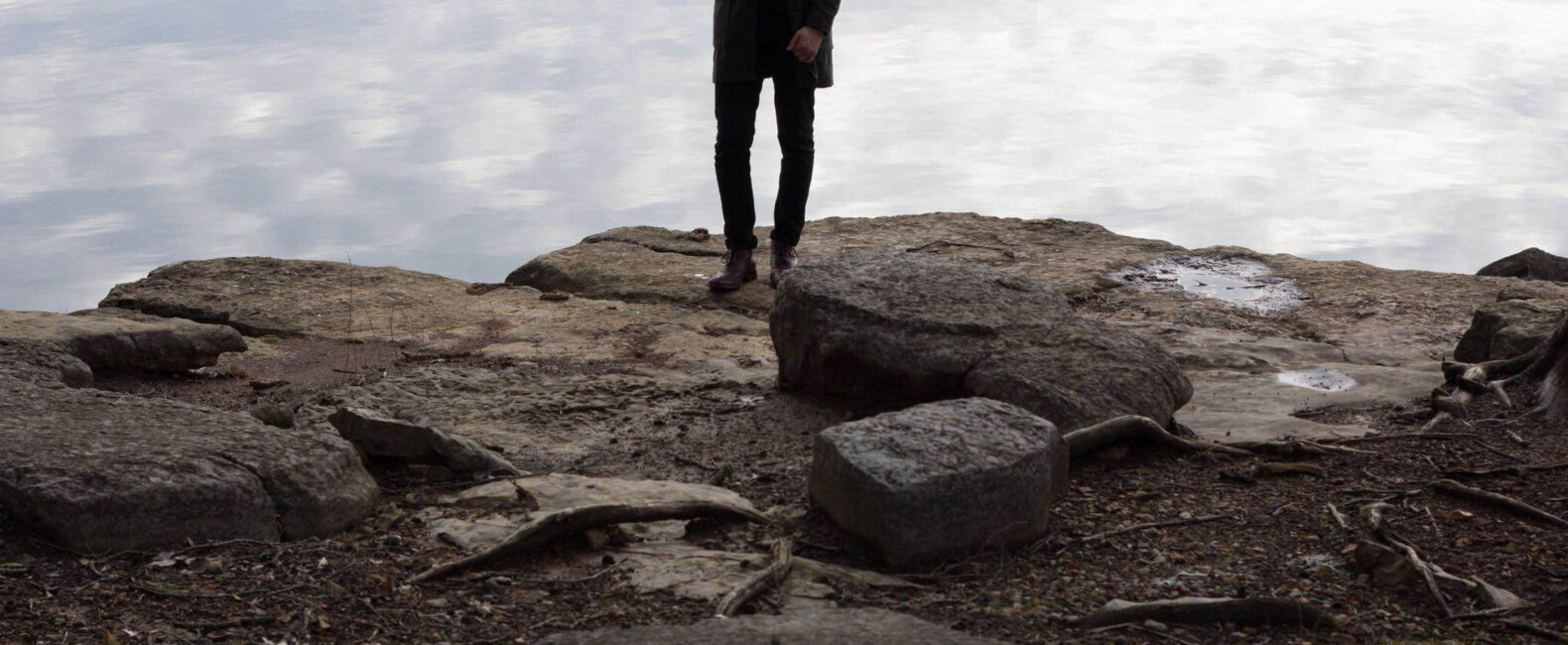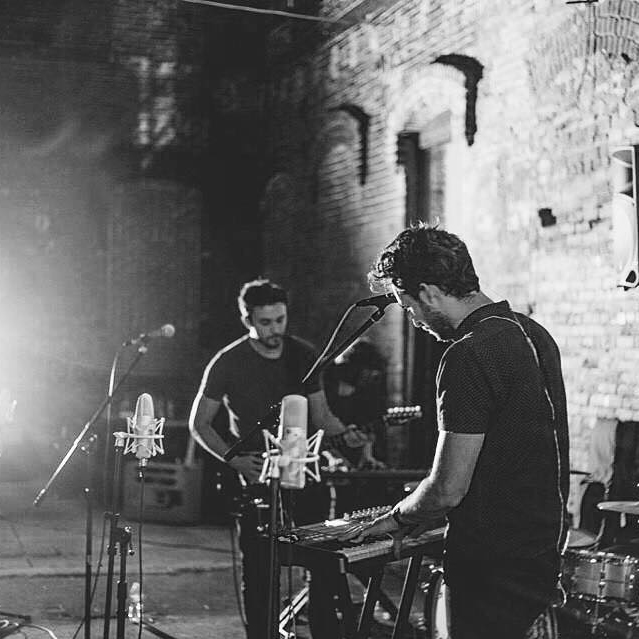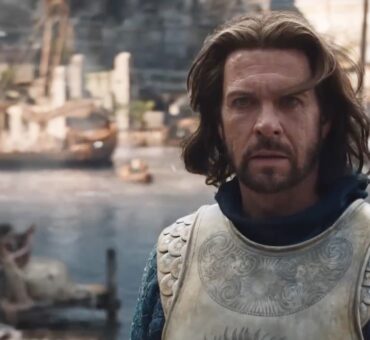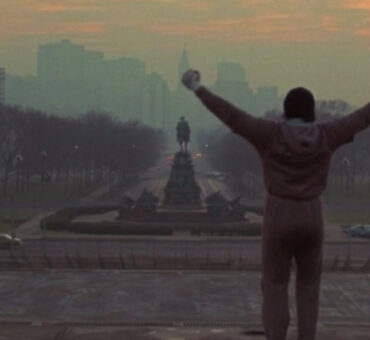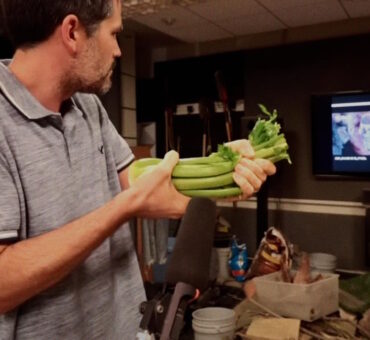Paul Davidson, a.k.a. MYYRA, is a self-proclaimed optimist. Which is a bit surprising if you’ve heard his music. His debut album — Erase. Rewind. Restart. — is melancholy to the core. The name smacks of regret — or at least a desire for a do-over. These songs were written a few years ago, after Paul had left everything behind and moved to Nashville in hopes of making it as a musician.
“I was completely focused on music at the time,” Paul told us. “I also didn’t know very many people. And when you don’t know very many people, what could be better than locking yourself in your room and writing sad songs?”
But Paul isn’t sad. And maybe that’s because he lets his music be sad for him. “Music is a way of balancing myself out. A way to reflect and say, “Look, things aren’t always fine.” There is a cathartic element to these songs. Not just for Paul, but for his audience too. Maybe honesty is always cathartic. Or at least it’s a point of connection, which is what Paul has decided his music is all about anyway.

Paul Davidson: Perfect timing. We just got back from Target.
MB: Is that your go-to store?
We went to pick up some odds and ends. My daughter is 3 weeks old, so we had to get some gripe water.
That sounds gross.
Yeah. It helps her stomach though. It’s funny. I never would have thought I’d have a daughter at this point in my life.
No?
I had a lot of fears about pursuing music and getting married and being able to balance both. But I saw a lot of my friends move to Nashville and make it work, so that helped change my thoughts on it. Obviously, it depends on who you’re with. My wife is a big factor.
Did you always want to become a musician?
Not really. I was a pretty well-spoken kid, so my parents thought I was going to be a doctor or something. They were both coming from a lower class, very impoverished upbringing. My dad was one of seven. His dad was a pastor and didn’t make a lot of money. My mom’s dad died when she was nine, so her mom was a single mother. They lived off food stamps, just trying to make it. Both my parents did blue collar trade jobs. My dad was an electrician. My mom is a nurse. But they worked hard to give me every opportunity to be successful. They always wanted the best for me, and music wasn’t on their radar. They encouraged me to finish school, get a nine-to-five. That’s just what they knew.
Where did you grow up?
New York. I was born in West Islip. Lived in Ronkonkoma for a couple years, but mainly grew up in Smithtown, which is about half an hour outside the city.
Did you go to college?
Briefly. I was just so unfocused. Now that I’m 28 and have seen a little bit of life, it makes sense that I became a musician. But I didn’t start writing music until after I got kicked out of college.
Kicked out?
Yeah. I had the hardest time being diligent with homework. Or, like, going to class. It all felt like a waste of time. I’m sure most kids deal with that, but I couldn’t cope. I moved back home with my parents and had an existential “what’s my purpose in life?” kind of time. I was having girl issues too. But I heard some song on a TV commercial. It was a song by Joe Purdy called “Can’t Get It Right Today.” It’s a simple piano and vocal thing, and for some reason I was like, “I should start playing piano again. I bet I could play that song.” So I did, and it was terrible; but that’s what started me down the rabbit hole. I caught the bug and started writing.
How did you end up in Nashville?
I knew a guy in Nashville, and he kept saying I had to get down there. Nashville was the place to be. He said I could stay on his couch, so I packed up some stuff and made the move. Just blind faith. The music I was making then was very different than what I’m making now. About as different as you can get. Singer/songwriter type stuff. But I got here, and I was inspired by all the local artists and all the people traveling through.

Renewal was a big theme in my life when I was making it. I had left everything: my family, my job, my comfort. I was 25 years old and completely starting over. That’s when I started this project.
I got turned on to the alternative type of music where you experiment with synths and sounds. I got into Radiohead. Brian Eno. M83. I ended up writing the first song on my record, “All About You,” and showed it to my roommate. He was like, “Dude, that’s really something. You should explore that.” So that started me down this path I’m on now.
There are some pretty great sounds on this album. How did you develop those?
Honestly, I got GarageBand and locked myself in my room. I was completely focused on music at the time. I also didn’t know very many people. And when you don’t know very many people, what could be better than locking yourself in your room and writing sad songs?
How were you making money?
Smoothie King.
Was that depressing?
At times, yes. Definitely. But I’m an optimist to a fault. I’m the guy who’s always like, “We’ll be fine. It’s okay. Don’t worry about it.” My wife will be like, “Yeah, but we have no food.” And I’ll be like, “Okay, I’ll go get food.” I think that’s the gift of my personality. But yeah, Smoothie King was definitely depressing at times. There were some very lonely moments.
But when I first moved down here, I went to a music festival called Live on the Green. There were maybe 10,000 or 12,000 people there. Today, it’s probably double that size. That was one of the first things I went to. I was in the middle of my quarter-life crisis, and that concert gave me hope, for some reason. Like, “It’s all right. You’re in the right place. It’s time to get to work.”
Why did you name your album Erase. Rewind. Restart.?
Renewal was a big theme in my life when I was making it. I had left everything: my family, my job, my comfort. I was 25 years old and completely starting over. That’s when I started this project. And at first I felt a lot of pressure. I mean, I didn’t start writing music until I was 20. That’s kind of a late start compared to these kids who write songs when they’re 14. But I had to release that pressure from my mind. I told myself, Whatever. Focus on the future. See what happens. That’s kind of a theme in all of these songs.
Does having a wife and daughter change the way you see music?
One thing I always struggle with is how structured I want my music to be. I feel like my goal is to break free of structure. But for some reason, having a wife and daughter, living a very normal life, it makes me think, Okay, the most important thing is connecting with people. Sure, having technically good music is important to me. I want the music to be as good as it can be. But at the same time, if people can’t connect with it, what good is it? My wife and daughter remind me of that. It doesn’t need to be flashy. It just needs to make you feel something. That’s all that matters.

We agree with Paul. The reason we love music so much is the connection it brings with it: connection with the artist, the audience, and sometimes even unexamined parts of ourselves.
Check out MYYRA’s album Erase. Rewind. Restart. in the Musicbed library.















































































